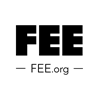Download:
In July the federal government added the millionth name to its “Terrorism Watch List”—and it may have been yours.
Comprising just 16 names on September 11, 2001, this modern blacklist now functions as a catchall and cover for federal intelligence agencies. Since no one wants to be accused of overlooking a terrorist, bureaucrats have added names willy-nilly over the last seven years, to the tune of 20,000 a month. The ACLU maintains a website with a counter (http://tinyurl.com/2sz52g): it has now hit the magic million.
If you’re the unlucky millionaire, you’ll find yourself among the rich and famous. Senator Ted Kennedy (D–Mass.) and Representative John Lewis (D–Ga.) both made the roster at one point, as they discovered when they were denied boarding at airports. This must have come as a surprise since neither man realized he was an enemy of the United States until he tried to fly commercially. In fact, that’s how most victims learn they’ve been promoted from American citizen to terrorist so dangerous they can’t board planes. Some, like Kennedy, work to prove their innocence so that the government will admit it erred and remove them from its blacklist. You might think this would be fairly easy for politicians, given their pull. But it actually took Kennedy’s staff three weeks of calls to the Transportation Security Administration (TSA) and a chat with Tom Ridge, then the secretary of homeland security, to smooth his travels. It took Lewis even longer—“months,” according to the Washington Post. Imagine what the ordinary “terrorist” endures as he tries to re-establish his air-worthiness.
Many Americans don’t take well to the news that they’re on the list. Edward Allen of Houston broke into tears. The four-year-old boy whimpered, “I don’t want to be on the list. I want to fly and see my grandma.” Screeners stopped another child, this one all of five years old, at Seattle’s airport last January. They searched him as though he were al Qaeda’s newest recruit while forbidding his mother to comfort him with a hug. No inanity is too heartless when national security is at stake.
Inclusion on the list does more than keep you off flights. Companies that check your financial history, such as car dealerships and mortgage brokers, may refuse to deal with you since the credit report will mention that the Office of Foreign Asset Control is monitoring you—along with other alleged terrorists and drug dealers. A place on the list can even earn you a beating. Akif Rahman is a computer consultant who was born in Springfield, Illinois. He says he was trying to return home from Canada a few months ago when “he was held for five hours, shackled to a chair and kicked by a Customs Service agent. . . . ‘I was fearful for my own safety and that of my family,’ said Rahman. . . . ‘I simply could not believe that I, a born U.S. citizen, was going through this experience simply re-entering my own country.’ ”
Top Secret Process
How is the list compiled? Who’s on it? What did they do to land there? No one knows because the list and all procedures relating to it are top secret. We wouldn’t want Osama bin Laden to know we’re onto him, now, would we?
It’s also virtually impossible to get off the list regardless of how thoroughly you prove you aren’t scheming to blow up jets. John Lewis finally outsmarted the TSA by adding his middle initial to his name when he buys airline tickets. But this doesn’t always work, as any “Robert Johnson” can tell you. “60 Minutes” assembled a dozen men with that name in its studios last year and taped their horror stories—everything from strip searches at airports to interrogations that humiliate and delay them so long they miss their flights. Even the original “Robert Johnson,” the one who’s actually supposed to be on the list, seems unworthy of such effort: CBS reported that he’s “a 62-year-old black man who was convicted of plotting to bomb a Hindu temple and a movie theatre in Toronto. After serving 12 years, he was deported to Trinidad.”
A catalog of “individuals known to pose, or suspected of posing, a risk of air piracy or terrorism or a threat to airline or passenger safety” has been around since 1990. But it did nothing to stop the 9/11 hijackers. It’s done nothing since then, either, but harass innocent Americans: it hasn’t enabled the Feds to capture a single terrorist.
Which doesn’t keep the government from praising this anti-American abomination. “The list is very effective,” says FBI spokesman Chad Kolton. “In fact it’s one of the most effective counterterrorism tools that our country has.” And here you thought “counterterrorism tools” didn’t get any “more effective” than forcing passengers to pad barefoot through airport checkpoints. To quell such cynicism, Kolton cited a report from the Government Accountability Office (GAO) that found “general agreement within the federal government that the watch list had helped to combat terrorism.” It’s a good bet the GAO would find general agreement among foxes that henhouses need four-legged guards, too.
Targeting Innocent Americans
Like the rest of the domestic War on Terror, the “Terrorism Watch List” supposedly targets terrorists while actually preying on innocent Americans. It penalizes people for an attribute they can’t help: their names. Then it excuses the government for treating these folks as if they are guilty of terrorism without ever having proved those suspicions in a court of law. A hallmark of a free society is living your life without impediment unless the state shows at an open trial, according to fair and established procedures, that you have committed a crime heinous enough to justify depriving you of your rights. When we allow the government to abandon this standard—when it can hassle hundreds of thousands of people because their names resemble a suspected terrorist’s—we empower a police state.
And that’s far more dangerous than any terrorist.

